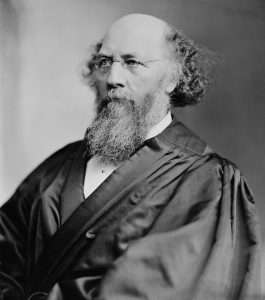Professor Allyn Walker was a sociologist at Old Dominion University. Walker’s research included “minor attracted individuals,” which was the topic of Walker’s new book recently published by a well-respected university press. When Walker’s research came to public attention, it generated immediate controversy, including threats against Walker and the campus and calls for Walker’s immediate termination. The university initially defended its commitment to academic freedom, but soon placed Walker on administrative leave. Walker has now resigned from the faculty.
Cathy Young has recently called “the Allyn Walker story is a test case for both progressives and conservatives,” and she’s right. Old Dominion seems to have failed its test.
When Walker was suspended, the Academic Freedom Alliance warned Old Dominion University that it was caving under pressure and sending a chilling message to every member of the faculty who might be engaged in controversial research. Unfortunately, the university continued down that path and allowed the mob to drive a professor from the campus. Although the Walker case has now been resolved with the professor’s departure from campus, the issues raised by the controversy remain all too relevant.
The AFA has now released publicly the letter that it sent to the administration of ODU. As always, the AFA is not concerned with the substance or merits of a professor’s work or ideas but with the principle that universities should be places that tolerate controversial ideas and that allow free inquiry and debate, not public opinion or political pressure, to separate error from truth. Universities should not allow threats and intimidation to short-circuit that process of critical inquiry and should not allow ideas to be suppressed and scholars defenestrated simply because they are perceived to be heretical or even dangerous.
From the letter:
It cannot be consistent with academic freedom for a university to cave in to hostile reaction on and off campus to a professor’s scholarly work. The fact that students or members of the public might be offended or disturbed by a professor’s research agenda, arguments or terminology is no basis for sanctioning the professor. The fact that they might express their outrage by making threats to the professor or to the campus only heightens the responsibility of the university to ensure that the professor is capable of continuing to perform their academic duties unmolested. For a university to validate such a “heckler’s veto” by suspending rather than protecting the faculty member will only encourage such campaigns of threats and intimidation. There are far more appropriate steps for a university to take in response to credible threats of violence or disruption that would be compatible with rather than contrary to academic freedom and the university has a responsibility to take such steps.
. . .
There is no doubt that the questions being examined by Professor Walker are important ones. Academia should be a place where such difficult questions can be boldly and honestly investigated. If a scholar’s analysis is mistaken, then it should be rebutted or ignored. But the scholar should not be driven from campus for daring to ask such difficult questions or for reaching the wrong or unpopular answers.
The post Controversial Researcher Driven from Campus at Old Dominion University appeared first on Reason.com.
from Latest – Reason.com https://ift.tt/3Db2WAA
via IFTTT






